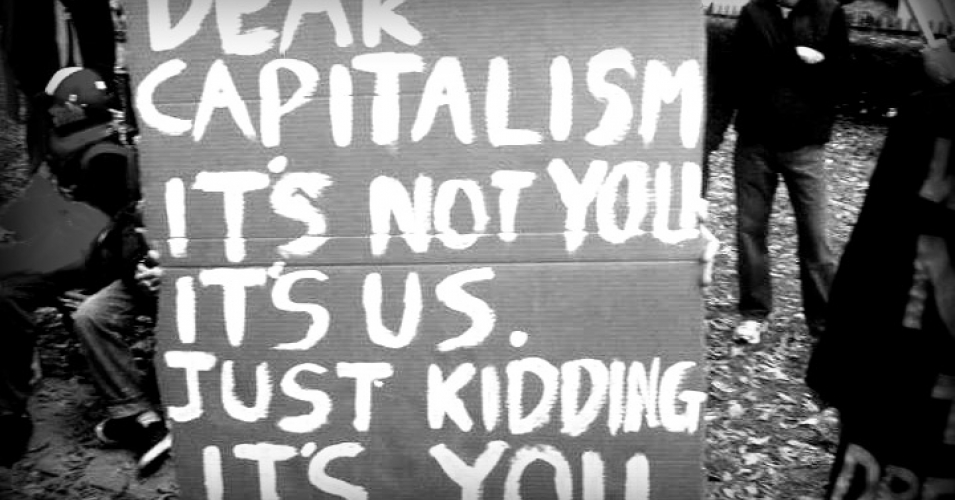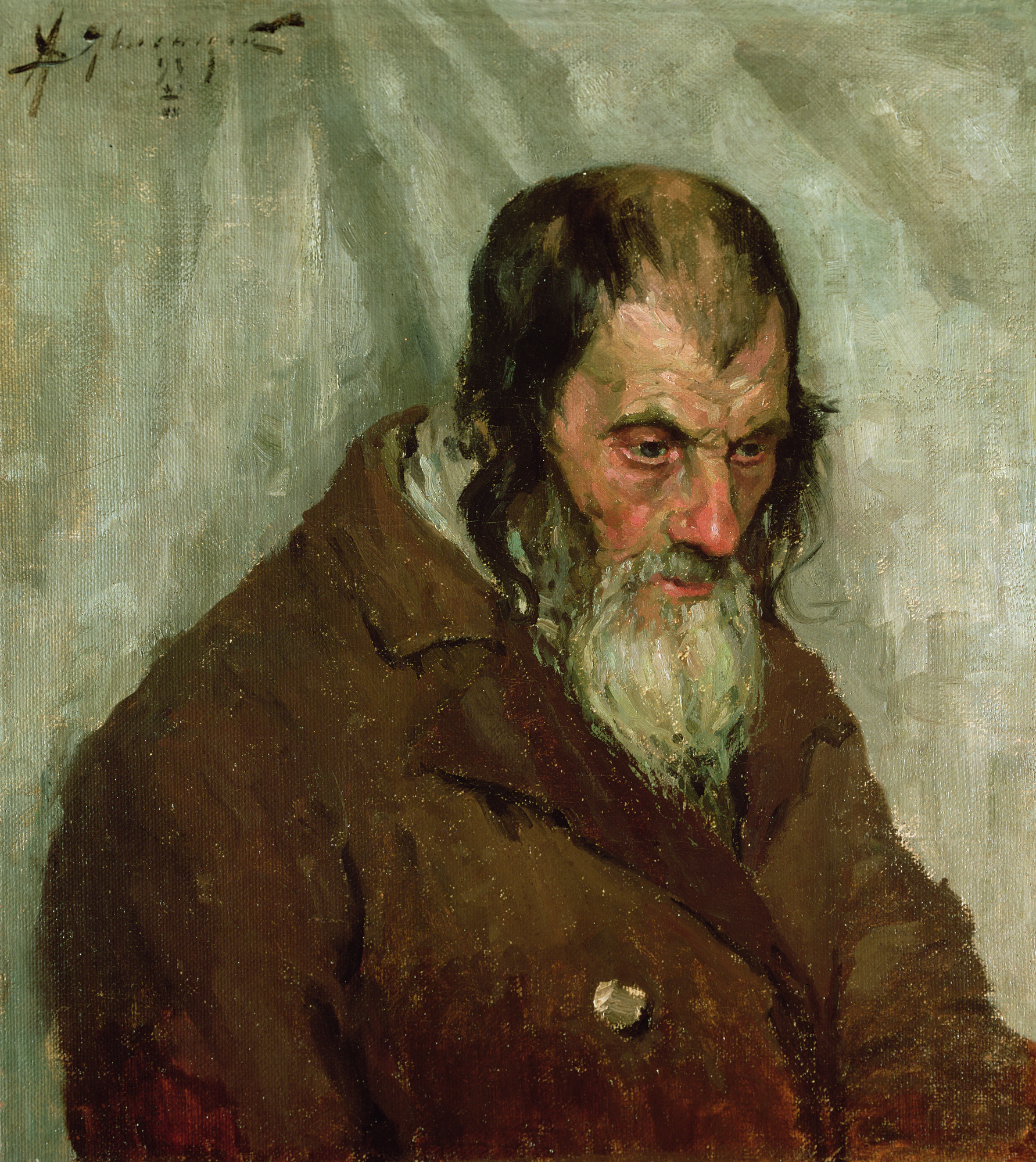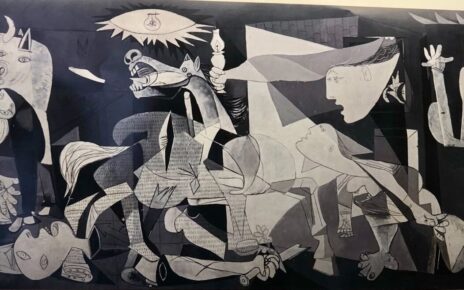The following is the first installment of a three-part series.
In his long-awaited interjection into the debates on the future of Marxism after the collapse of Soviet state communism, Jacques Derrida introduces the notion of contretemps.[1] It is a concept that appears amid his call for a New International to bear the legacy of critique in a (final) epoch dominated by the new world order with its ten pervasive plagues.
As is to be expected however, Derrida is no orthodox Marxist, and his intervention seeks, in part, to proffer a deconstructionist critique of the canonical concepts of class, history, party, etc. At the same time, he seeks to channel the critical spirit of Marx in order to re-politicize the current moment, introducing contretemps in order to highlight the persistent openness and counter-temporality intrinsic to the work of democracy. The details of Derrida’s heterodoxy and his dispute with more mainstream Marxists, however, are not of primary interest for this essay. Still, I take his notion of contretemps to be an entry point for looking at how the church can draw upon Marxist insights for reimagining its own transformative political practice, particularly in an age of global capital.
Like Shakespeare’s Hamlet, wherein the ghost of the murdered Danish king continues to disturb his perplexed son, Derrida’s engagement suggests that the specter of Marx haunts the dominion of global capital, as a troubled spirit arising from the ache of a society whose relations have been pulled out of joint. At the heart of an unfettered and regnant capital, he suggests, is a distorted time. Derrida asserts, “The age is off its hinges. Everything, beginning with time, seems out of kilter, unjust, dis-adjusted,” as the time of quantifiable instants and unlimited accumulation distorts the structure and rhythm of social and political relations.[2]
Given the madness and the dislocation of time, a resistance that works toward democracy, justice, and solidarity must be something of an untimely, out-of-step practice. The concept, as Derrida develops it, and as it is then expanded by the French Marxist, Daniel Bensaïd, suggests the performance of a political time heterogeneous to the order of the regnant regime, a rhythm and tempo that seeks to right these distorted relations. Structured by dissonant socio-political processes, contretemps moves out of sync with capital flows in search of justice and in witness to an alternative order.[3] The struggle against the global reign of a disfigured political economy is, in this view, a struggle for/of time itself, wherein politics regains primacy over the determinist universal history of capital.
Pursuing a Marxish reading of capital time and an understanding of ecclesial practice developed in light of the notion of contretemps, this essay attempts to do three things.[4] First, I want to examine the nature of the dislocated time of capital, exposing it as a regime of accumulation that operates by homogenizing and quantifying time, therein emptying it of all meaning and significance. Second, I will sketch a politics of contretemps derived from the explications of Bensaïd that seeks to complicate time so as to saturate it with political possibility, charging it with potent contingency and activating it for permanent revolution. In the end, however, I will show that while this view of contretemps may serve to introduce a political exigency, it remains forestalled by both its struggle to locate a structured and choreographed community capable of enacting such an alternative as well as a larger view of history and the cosmos capable of imbuing it with significance.
Lastly, I develop a theo-politics of the practice of contretemps derived from a Free Church ecclesiology to argue for its embodiment in the social and political practices of the Table and the Rule of Christ. Beyond offering simply an alternative geometric representation of time patterned by its calendric measure, following this “baptist vision”[5], I will contend that, when performed in the full freedom of self-critical deliberation, these ecclesial practices enact the alternative daily tempos of a counter-politics out of step with the process of capital and infused by the reign of God. Joined in a koinonia constituted by the presence of Christ and participant in an ongoing political process of deliberative forgiveness empowered by the will of God in the Spirit, the gathered community embodies a distinct mode of fellowship, collective discernment, and conflict resolution configured to the new age of the kingdom. A new humanity continually reconstituted and reformed in this self-critical yet Spirit-empowered process, the believing community acts in consonance with a time reconfigured eschatologically to the renewal of creaturely existence. In doing so, it contests the meaninglessness of capital’s empty time and the dominion of its circuits.
Time Emptied: The Dominion of Capital
In the chapter on money in the Grundrisse, Marx states that for capital “the determination of time remains, of course, essential” because the key to the entire process is the “economization of time.” At its core, then, he summarizes, “all economy ultimately reduces itself” to the “[e]conomy of time.”[6] Such is the basis of the order of capital. Within this order, the circuits of capital have succeeded in shaping a regnant social time that greatly defines the experience of time itself in all of its dimensions, whether they be biological, psychic, cosmological, or of course, socio-political.
As a dominant time, it also informs rationality and orders history, establishing its hegemony through a process that quantifies and homogenizes time for exchange and accumulation, ultimately distorting its human quality by monetizing it.[7] Within this system “time is money,” designating the way in which capital solidifies its unrivalled dominion and ascendency over the social and the political.[8]
In order to better understand how capital captures time and thereby establishes its reign across social and
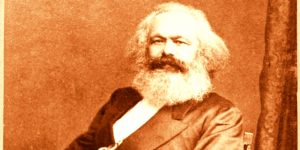
political life and even in the subjectivity of its denizens, I want to take a closer look at the history, configuration, and rationality of capital time in order to illuminate the way it distorts and captures this essential dimension of creaturely existence for the purpose of accumulation.[9] If, as one philosopher has put it, “every culture is first and foremost a particular experience of time,” then this analysis will not only seek to provide a critical understanding of the diminished character of life under capital’s reign, but it will also suggest that “no new culture is possible without an alteration in this experience.” Following this Marxish intuition, then, not only will my aim be to clarify the challenge posed by the dominion of capital, but also to show that any true alternative to this regime must first and foremost “change time.”[10]
Time is intrinsically difficult to conceive and because of this the human experience of time is often conceptualized indirectly, that is, with respect to spatial images.[11] As a peculiar configuration of time having emerged in the West, capital instills its own geometric representation in its subjects and their activities. Under capital, time as rectilinear, homogeneous, and infinitely accruable has replaced a sense of circular social and cosmic (or sacred) time.
Similarly, time as storied is also eviscerated. While other more expansive accounts of capital temporality exist, a brief recap of this history will help to clarify how the hegemony of capital crystalized in the ascendency of its determination of time and why its dominion is concentrated here.[12] To elucidate this, I will rely most heavily on the path cut by Éric Alliez whose chiastic reading of the history of philosophy displays how the conception of time becomes dislodged from the framework of the polis and the cosmos only then to be reconfigured through financialization for the process of exchange and accumulation.[13]
According to Alliez, the origin of the homogenous and rectilinear time of capital appears already in Aristotle’s discussion of chrematistics in the Politics. Because by nature the charging of interest monetizes time, Aristotle recognized that the practice of chrematistics (or the art of money-making) severed and disfigured the social and political lineaments of the polis, ultimately “[emptying] the city of its self-presence.”[14] As a result, it was not possible to fully integrate this technique of money-making, or money lending, into the life of the city state.
While it was a skill that inevitably developed within the workings of the city, it always remained at odds or incompletely reconciled to it, a contradiction the Aristotelian polis is never able to resolve.[15] A vector dislodged from the natural movement of the cosmos and the just movement of the polis, the art of chrematistics redirected time from their circular movement, consequently, disordering human relations by conforming them to a quantified time incommensurate with the epistemic and ontological register of Aristotelian philosophy.
As a result, the city must continually curtail this practice by forcing the vector back into the circle and by asserting the common good over the circulatory aim of the techniques of finance.[16] Still, the conflict between these two times persists in Aristotle’s vision of the polis, as the disembedded and rectilinear time of money-making remains irreconcilable with the integrated, self-present, circular time of the virtuous city.
Under the subsequent influence of Neoplatonism and Augustinian Christianity, a new sense of time emerged, one that sought to reconcile the circular and linear conceptions in its own way. In a world disconnected from the stability of the polis, Neoplatonism universalized time while interiorizing it, suffusing it with the “audacity” of the soul whose time is new at every given moment. As Alliez puts it, for Plotinus, time is the living movement of the soul, whose desire extends toward the external, material world.
Given that matter is always in flux, however, this temporal movement remains always fleeting.[17] Whereas for Plato and Aristotle proper time was derivative of the eternal immutability of the cosmos whose circularity represented its eternity, within Neo-Platonism the line of fleeting time and the circle of eternal being converge in the soul’s (psuche) emanation from the atemporal intellect (nous). Setting the fine points of philosophy aside, what is critical to see here for the development of the experience of time is that a “transposition from cosmology (out of which comes the soul of the Platonic world) to anthropology and psychology” has occurred, as now it is the divergent vector of external desire and temporal consciousness that must continually (for the virtuous) be bent back into the eternal present of the intellect, subsuming psuche to nous.[18]
Furthermore, for Plotinus, the harmonization of the soul to the intellect within the individual participates in the universal reconciliation of Being as an instance of the overall unfolding and enfolding of the cosmic Soul under the eternal principle of the formal Intellect. The gathering of the Soul (temporal) back to the Intellect (eternal) is both individual and cosmic according to the logical schema of emanation. Neo-Platonism’s internalized time, experienced as the movement of a series of fleeting instants, however, would gain a new frame of reference and resonance in the philosophical theology of St. Augustine.
Working within and at points against this Neo-Platonic conception, Augustine reconceived time in a decisive way for the Western tradition.[19] It would be impossible to do complete justice to the complexity of Augustine’s thought in the small amount of space I have here to cover it, but for the purpose of my argument one main aspect that emerges from Augustine’s rendition of time must be mentioned. Theologically Augustine’s conception of time is influenced by his sense of salvation history, wherein time is not rendered circular but instead drives forward with a clear sense of direction.[20]
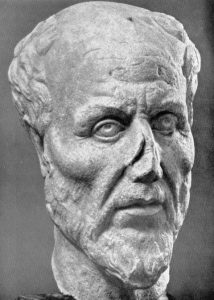
And yet, influenced by Neo-Platonism, Augustine also sees time as an “interior phenomenon,” a series of irreversible and fleeting instants registered upon the will’s conscious engagement.[21] The human, for Augustine, is time. Within the Augustinian understanding, however, homo temporalis remains a question to herself, as her experience of time (as a series of fleeting instants) cannot fully grasp the direction of salvation history and its congruence with eternity. Here the question of the relation between time and eternity is driven further into the will, as only a will perfected through a divinely graced memory can become congruent with the eternity of God.
Thus, on the one hand, time in its original and eschatological register remains good for Augustine. In its primordial form, it stands in natural, harmonious relation to eternity as the creaturely distention that images God. On the other hand, because humanity is fallen the current experience of time is dislocated from this original and salvific presence. Human temporality takes on a degenerative, earthly quality, a corrupt intention having distorted its distention. Thus, a disjointed time of decay characterizes the earthly city, while the heavenly city, only intimated by those schooled in humility through the contemplation of the sacrament, remains an invisible and timeless end experienced simply as the complete annihilation of human, earthly time.[22]
Irreconcilable spatial configurations continue to inform Augustine’s conception of time, providing the geometric incommensurability that pervades his rendering of the relationship between the two cities. Hence, time, for Augustine, becomes synonymous with the direction of the intensive movement of the human will, a movement within the fallen state of humanity corrupted by avarice and cupidity that turns continually away from the eternal and toward itself or material things. In his dialectical construction of time, earthly time falls away in disconnection from the eternal transcendent, even as it maintains the vestige of directionality bequeathed to it by the linear trajectory of salvation history.
Earthly time, consequently, takes on an independence and autonomy of its own in contradistinction from the heavenly sphere.[23] The cultural representation of these developments in the experience of time can be seen in the writing of history itself—a practice which in Herodotus and Thucydides was intent on holding up and procuring the eternal in the face of the degenerative flux of temporal events and in Polybius and Livy becomes more focused on the stability and achievement of the virtuous statesman in the face of temporal decay. Augustine’s autobiography set against the negative history of the earthly city in the City of God merely transposes this view of time into a Christian trajectory and frame. His view implants a determinative fissure in the Western notion time, setting the tangible experience of earthly time’s irreversible, rectilinear, and fleeting moments over against the stable realm of the eternally divine, all-encompassing present the salvific movement of which cannot be known.
The relation between these discrete realms preoccupied the theological and philosophical disputes of the Middle Ages, as realists and nominalists provided their own attempts to synthesize and define the quantified time of world and the simple, transcendent eternal. None of these can be equated with proto-capital time, although the distinction forms the backdrop from which capital time ultimately emerged.
While certainly not even or flat in its development or simple in its trajectory, the ascendency of the homogenous and quantified time of capital began to emerge in the later Middle Ages, amid the new social, political, and economic experiences that arose with the development of urban cities. As Alliez suggests, the synchronized hustle and bustle of the new cities with their increasing celerity and more complex circuits of bourgeoning commerce would exemplify an embodiment of autonomous earthly time.[24]
Prefigured in the monastery and facilitated theologically by the concept of purgatory, which served practically to link God’s time (transcendent) with earthly time in a quantitative relation, as historians Jacques Le Goff and E.P. Thompson have shown, the advent of merchant time took off in the late Middle Ages as the clock began to replace time marked by the ringing of church bells.[25] In no way was this transition monochromatic, neither were diverse or hybrid configurations of time eliminated as if by some decisive historical break.
Still, village clocks erected by merchants began to project a new experience of time, one distinct from the liturgical experience of time correlated with the holy days, masses, and seasons of the church or structured in the resolutions of canon law. A more rational and secular ordering of temporality arranged according to the homogenous segments of the working day slowly, and unevenly, crystalized as the dominant experience of time.[26] As merchantilism expanded and more peasants migrated from their traditional lands to these new enterprising urban centers, the cities grew in prominence and communal life was increasingly orchestrated by their tempos and rhythms.
The advent of urban work as wage labor monetized time. According to E.P. Thompson, such an experience amounted to a revolution in the nature of time: “Time is now currency: it is not passed but spent.”[27] Furthermore, the quantitative and segmented experience of time only intensified as working hours of mercantilism varyingly gave way to the factories of the industrial revolution. A diffusion of clocks and watches accompanied the expansion of industry, as a way of synchronizing labor and exchange, and these mechanisms for regulating the experience of time set new physiological and psychosomatic rhythms.[28]
Combined with a growing sense of progress, derived from the secularization of salvation history and realized in the advent of industrial innovation, a homogenous and rectilinear representation of time continued to coalesce at the heart of maturing capitalism.[29] The pace and path of these developments was uneven, for their was no unified organizing plan or structure for them. Nonetheless, as their circuits became more and more integrated and interfused a shared configuration of time emerged at the core of the process.
Again to glimpse the cultural manifestation of this emerging experience of time, Montesquieu’s Letters from Paris is illustrative. The epistolary novel at one and the same time shows how a growing sense of alienation accompanies the burgeoning sense of historical progress correlated to the emerging capital time that is becoming more pervasive and yet remains, because of uneven development, somewhat strange. Presenting European society to itself through the eyes of a foreigner, Montesquieu not only captures in representative form this inherent alienation but is also able in the same representation to communicate its sense of advancing civilization.
At the center of industrial capitalism, Marx realized, “time as the measure of the exchange value of labor 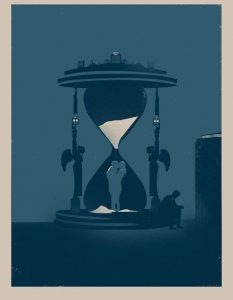 power renders its varied expressions homogenous and comparable from the point of view of the market.”[30] By quantifying time “capital ‘usurps’ time,” liberating it from all other determinations so as to claim all time for itself. In this process, the central paradox of capital emerges whereby in its dedication to minimizing all constrictions on time and liberating it for production it also harnesses and “binds the time of human beings.”[31] Rendering time quantifiable, capital transmogrifies the heterogeneous qualities of life (use, enjoyment, rest, mourning, etc.) into homogenous and exchangeable components, conforming them to a common measure.
power renders its varied expressions homogenous and comparable from the point of view of the market.”[30] By quantifying time “capital ‘usurps’ time,” liberating it from all other determinations so as to claim all time for itself. In this process, the central paradox of capital emerges whereby in its dedication to minimizing all constrictions on time and liberating it for production it also harnesses and “binds the time of human beings.”[31] Rendering time quantifiable, capital transmogrifies the heterogeneous qualities of life (use, enjoyment, rest, mourning, etc.) into homogenous and exchangeable components, conforming them to a common measure.
In contrast to a culture oriented by the stable calendric rhythm of holy days and ecclesial seasons, or the stable rotation of the cosmos and polis, within capitalist culture all moments are interchangeable, allowing them more easily to be captured within its circulatory flows. For, as Marx reminds us, “Moments are the elements of profits.”[32] As the source of productivity, time rendered as quantifiable and rectilinear not only orders the social and political to accumulation but orients and shapes the human subject to this experience as well. Its disjointed time, configured as a series of homogenous and irreversible units ordered to growth and accumulation becomes the culturally dominant experience of time under the imperial sign of money.
Time has become fully monetized, and homo temporalis has become homo economicus. The result, as Marx recognized, is that the person herself becomes completely determined by this experience of time. Within the domain of the fallen, earthly city, “Time is everything, man is nothing; he is at most time’s carcass. Quality no longer matters. Quantity alone decides everything; hour for hour, day for day.”[33]
Dan Rhodes teaches at Loyola University of Chicago where he is Faculty Co-Ordinator of Contextual Education. He is also Editor-in-Chief of The Other Journal. He holds a Th.D. from Duke University Divinity School. He is co-editor Christian Amondson and Silas Morgan of Faces of Debt: Theological Calls and Struggles for Material Forgiveness (a joint project of Syndicate Theology and The Other Journal).
_________________________________________________________________________
[1] Jacques Derrida introduces this term in Specters of Marx: The State of Debt, the Work of Mourning and the New International, trans. Peggy Kamuf (1994; reprint, New York: Routledge Classics, 2006), 96. The term in French bears the meaning both of a disagreement and untimely or inopportune action. Derrida, undoubtedly, plays on both meanings to convey his dispute with orthodox Marxism as well as his call for untimely political involvement.
[2] Derrida, Specters of Marx, 96.
[3] Ibid., 110. Derrida states, “I believe in the political virtue of the contretemps. And if a contretemps does not have the good luck, a more or less calculated luck, to come just in time, then the inopportuneness of a strategy (political or other) may still bear witness, precisely [justement], to justice, bear witness, at least, to the justice which is demanded and about which we were saying a moment ago that it must be disadjusted, irreducible to exactness [justesse] and to law.”
[4] I am indebted to Benjamin Kunkel for the use of the term “Marxish.” See his Utopia or Bust: A Guide to the Present Crisis (New York: Verso, 2014).
[5] My “baptist vision” is derived from James Wm. McClendon, Jr.’s outline of such in his Ethics: Systematic Theology Volume I, Second Edition (Nashville, TN: Abingdon Press, 2002; reprint, Waco, TX: Baylor University Press, 2012) in conversation with Robert W. Jenson, Systematic Theology, Volume 2: The Works of God (New York: Oxford University Press, 1999). It is also shaped by the ecclesiological contributions of John Howard Yoder of whom a word must be said. Much has come to light lately about Yoder’s abusive actions and his disregard for his victims as well as his refusal to submit to, and even his attempt to distort, the very ecclesial processes he is so keen to stress as constitutive of the church. That the theologian was able to continually rationalize his own disregard for the processes and those involved remains for me a very deep problem not simply with respect to the discordance between theory and practice but more importantly for the integrity of his theology as a whole. This is, no doubt, a difficult and pertinent question I hope the reader will not take my use of his work to have somehow easily resolved.
[6] Karl Marx, Grundrisse: Foundations of the Critique of Political Economy (Rough Draft), trans. Martin Nicolaus (1973; repr., London: Penguin Books, 1993), 172-73. Highlighting Marx’s insight, Daniel Bensaïd states that because “Capital is a specific, contradictory conceptual organization of social time…, the category of time is at the heart of the critique of political economy.” Daniel Bensaïd, Marx for Our Times: Adventures and Misadventures of a Critique, trans. Gregory Elliott (New York: Verso, 2002), 74, 77.
[7] My view of the dynamic character of capital’s dominion is indebted to the insight of Louis Althusser. As Fredric Jameson notes in his introduction to Lenin and Philosophy and Other Essays, Althusser provided a real contribution in reconceiving the static or simplistic notions of base and superstructure. He states, “When one combines the base-and-superstructure formula with the problem of social reproduction [as Althusser did], everything changes. The former is now set in motion as it were, and a whole new account of social temporality is required which it is the function of the influential Althusserian conception of the Ideological State Apparatus (as distinguished from the repressive apparatuses of the State) to supply” (Fredric Jameson, “Introduction,” in Lenin and Philosophy and Other Essays, by Louis Althusser (New York: Monthly Review Press, 2001), xiii).
[8] Benjamin Franklin, “Poor Richard’s Almanac, Jan. 1751,” in The Papers of Benjamin Franklin, ed. L.W. Labaree, W.J. Bell, H. C. Boatfield, and H. H. Fineman, vol. 4 (New Haven: Yale University Press, 1961), 86-7, cited in E.P. Thompson, “Time, Work-Discipline, and Industrial Capitalism,” Past & Present 38, no.1 (1967): 89.
[9] I have in mind Marx’s comment in the Grundrisse stating that “It is not individuals who are set free by free competition; it is, rather, capital which is set free.” Marx, Grundrisse, 650.
[10] Giorgio Agamben, Infancy and History: On the Destruction of Experience, trans. Liz Heron (New York: Verso, 2007), 99. In this essay, Agamben argues that the failure of Marxism is due to its failure to develop a practice and experience of time that sufficiently correlates with its concept of history.
[11] Ibid., 100.
[12] See, for example, E.P. Thompson, “Time, Work-Discipline, and Industrial Capitalism” and Jacques Le Goff, Time, Work, and Culture in the Middle Ages, trans. Arthur Goldhammer (Chicago: University of Chicago Press, 1980).
[13] Éric Alliez, Capital Times: Tales from the Conquest of Time, trans. Georges Van Den Abbeele, vol. 6. Theory Out of Bounds (Minneapolis, MN: University of Minnesota Press, 1996). It is worth noting here that Teresa Brennan, among others, provides an insightful and parallel analysis of how ecologically capital pulls time out of joint by transposing technological reproduction on and over the natural process of resource reproduction. In her own way she describes how the arrow of capital outruns and dislocates the circular time of nature. See Teresa Brennan, “Why the Time is Out of Joint: Marx’s Political Economy without the Subject,” South Atlantic 97, no. 2 (Spring 1998): 263-280.
[14] Alliez, Capital Times, xvii.
[15] Ibid.
[16] Ibid., 1-25.
[17] Ibid., 32.
[18] Ibid., 50.
[19] Augustine’s engagement with the theme of time appears in Book 11 of his Confessions. For critical commentary on his conception of time, see Agamben, Infancy and History, 103-05; Antonio Negri, Time for Revolution, trans. Matteo Mandarini (New York: Continuum, 2003), 30-36; and Hannah Arendt, Love and Saint Augustine, ed. Joanna Vecchiarelli Scott and Judith Chelius Stark (Chicago, IL: University of Chicago Press, 1996). For a theologically critical engagement with Augustine’s conception of time, see Jenson, Systematic Theology, Volume 2, 29ff.
[20] St. Augustine, City of God Against the Pagans, trans. Henry Bettenson (New York: Penguin Classics, 1984; reprint Penguin Books, 1987), 12.21. Also see Agamben, Infancy and History, 103.
[21] Agamben, Infancy and History, 103-104.
[22] Alliez, Capital Times, 100ff. Commenting on the internal, invisible location of Christian faith that emerges in Augustine, Alliez notes earlier, “Far from there being a social norm, there remains for the Christian only an internal difference, which is revealed in the temporal dialectics of intention and distention. In the heart of the subject, in one’s innermost heart [son for interne], is where there is the projected shadow of the ontological fracture and of transcendence, whose process of expression is merged with the history of the principle of individuality. The chain of being broken, the divinity abandons the world to creation in order to coil back into the great spaces and vast palaces of memory.” Ibid., 88.
[23] Ibid., 82.
[24] Ibid., 229.
[25] Alliez notes that the infatuation with the detailed scheduling of the day, so characteristic of merchant time and capital time, arises within the Benedictine monasteries (143-44) and that the doctrine of purgatory and the selling of indulgences redeemed merchant practice by establishing a relation of exchange between this world and usurious time and the next world, or, God’s time. The heavenly city could be accessed with the golden key (xxiv). Also, Jacques Le Goff notes the way in which merchant practice is rehabilitated starting in the thirteenth century and developing through the fourteenth and fifteenth centuries. He too notes the connection to the concept of Purgatory. See Jacques Le Goff, Money and the Middle Ages: An Essay in Historical Anthropology, trans. Jean Birrell (Malden, MA: Polity Press, 2012), 68-71. With respect to the role of clocks in connection to the shift in perspective on time, see Jacques Le Goff, Time, Work, and Culture in the Middle Ages, 29-52; and E.P. Thompson, “Time, Work-Discipline, and Industrial Capitalism,” 69.
[26] Le Goff, Time, Work and Culture in the Middle Ages, 36.
[27] E.P. Thompson, “Time, Work-Discipline, and Industrial Capitalism,” 61.
[28] Ibid., 69.
[29] Agamben, Infancy and History, 105.
[30] William James Booth, “Economies of Time: On the Idea of Time in Marx’s Political Economy,” Political Theory 19, no.1 (Feb. 1991): 8.
[31] Ibid., 14.
[32] Karl Marx, Capital: A Critique of Political Economy, Volume I, trans. Ben Fowkes (1976; reprint, London: Penguin Books, 1990), 352.
[33] Karl Marx, The Poverty of Philosophy, ed. C. P. Dutt and V. Chattopadhyaya (New York: International Publishers, 1892), 47.
[34] Alliez, Capital Times, 231. On this Kantian transition, also see Kenneth Surin, Freedom Not Yet: Liberation and the Next World Order (Durham, NC: Duke University Press, 2005), 22-23.
